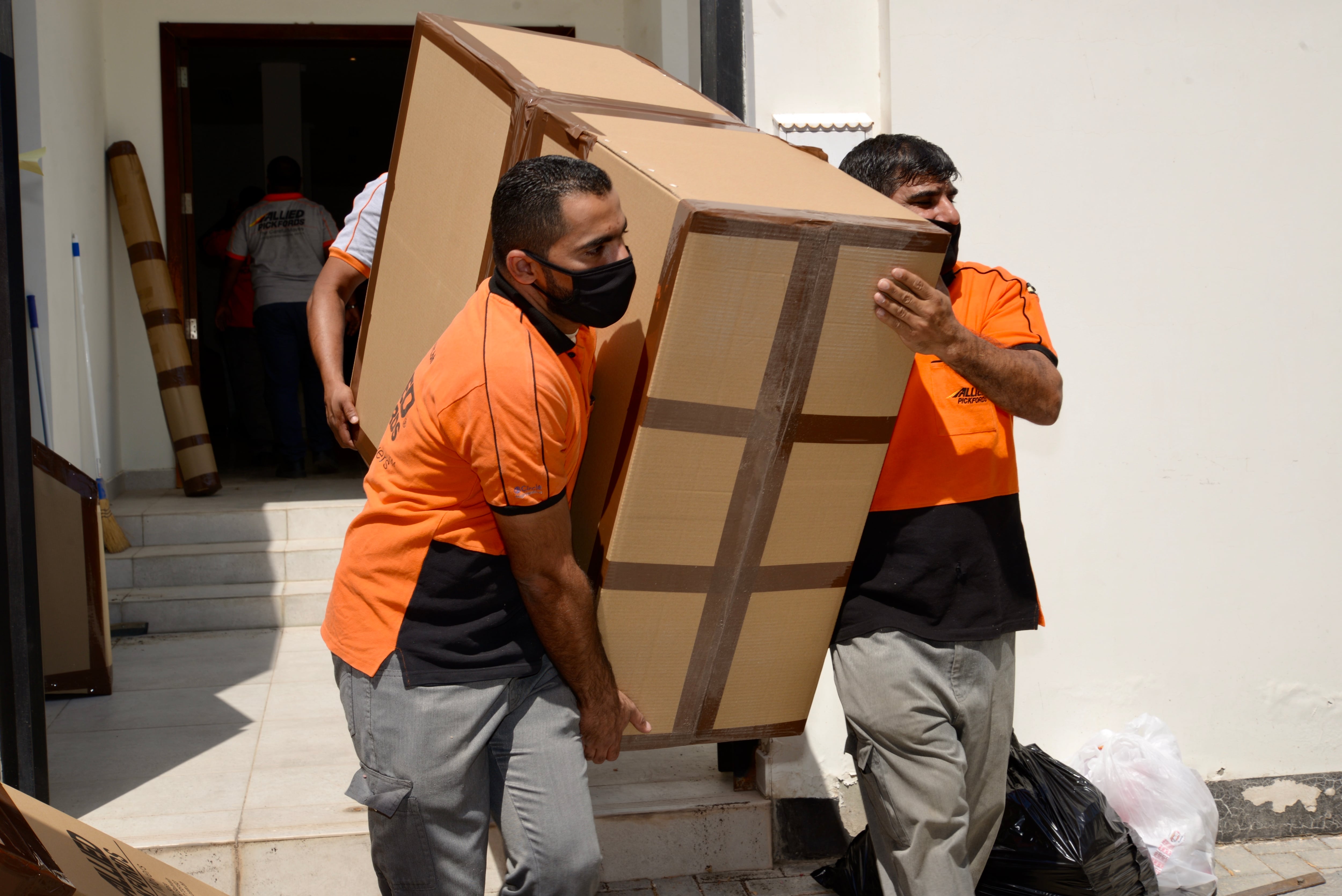After three months on a stop-movement order that banned non-essential travel throughout the services, the Defense Department has greenlit 48 U.S. states and territories, as well as half-a-dozen countries. That means permanent change-of-station moves are back on ― but the Navy may not get caught up until next year.
About 42,000 sailors are waiting to get their PCS orders situated, Chief of Naval Personnel Vice Adm. John Nowell told reporters Thursday, and it may be as late as February before they all get to their next duty stations.
“We’re going to spread that across the rest of calendar year ’20 and then I think we will catch up to that backlog ― I’m gonna tell you, some time in early ’21,” he said. “I’m hoping to under-promise and over-deliver.”
First up will be those heading to operational units, including strategic forces, special operations and sea duty billets. Within those, commands getting ready to deploy in the next year will be at the top of the list.
“We prioritize among operational sea duty by when you’re going to deploy,” he said. “And we try and make sure we have you filled as full as possible, if you will.”
That way, crews have time to coalesce for their pre-deployment work-ups.
In order to balance those needs, some sailors may be extended at their current commands until the stars can align so that someone is there to do a face-to-face relief with them, in addition to them directly replacing someone directly on the other end.
As compensation for that lag time, the Navy is drawing up plans for a special pay.
“The proposed sum is $500 a month to go ahead and say, ‘thank you, we know that we’re extending you,‘ ” Nowell said.
For those already receiving special sea duty pay, they will be paid whichever amount is higher.
The availability of contracted movers will have an effect on how quickly every PCS can get underway, Nowell said, so DoD is encouraging more do-it-yourself moves, which can be reimbursed on the back-end.
RELATED

Once those new orders are drawn up, they will probably include some instructions about COVID-19 prevention procedures for sailors and their families, depending on where they’re coming from and where they’re headed. If not, commanders will make those decisions.
Sailors heading overseas will have to follow the rules of the host country, many of which are requiring 14-day isolation after arrival.
“Service members, we can order them to do a quarantine, right?” Nowell said. “Family members, we can highly encourage. Which is what we do.”
But it will still be on a case-by-case basis. A sailor driving from Virginia to Florida in one day probably won’t need a restriction-of-movement, while anyone flying across the country and staying in a hotel likely will.
COVID repercussions
The CNP has also been looking at how these delays will affect career trajectories ― especially for officers, whose fitness report bullet points will look a little different after months of banned travel and a shifted timeline for taking on the next job.
“We’ve looked closely to make sure there’s no impacts to sailors on promotions and advancements,” he said. “Our mantra is: Disadvantage no sailor.”
Boards have continued to meet, sometimes virtually, and Nowell said some promotions will be backdated to when they should have occurred, even if they couldn’t physically happen.
“At least right now, I don’t think you’ve seen us trapping someone somewhere, where it’s detrimental to their career,” Nowell said.
Many operational units were considered mission-essential throughout the travel ban, meaning ships and others were still deploying and their personnel were getting that experience crucial for advancement and promotion.
At the same time, many of those on shore duty were in the same teleworking boat, but still accomplishing their missions, so quarantine should not have gouged their fitreps, either.
Any timing discrepancies will be documented in personnel records, Nowell said, and everyone will have a chance to explain to the board why their progressions might look a little wonky.
And of course, those sitting on the board will be well-familiar with COVID-19.
“We will write into our precepts and convening orders for promotion and advancement boards that any special circumstances, as we look at what happened with COVID, should be taken into account and no one should be penalized for that,” Nowell said.
Meghann Myers is the Pentagon bureau chief at Military Times. She covers operations, policy, personnel, leadership and other issues affecting service members.




